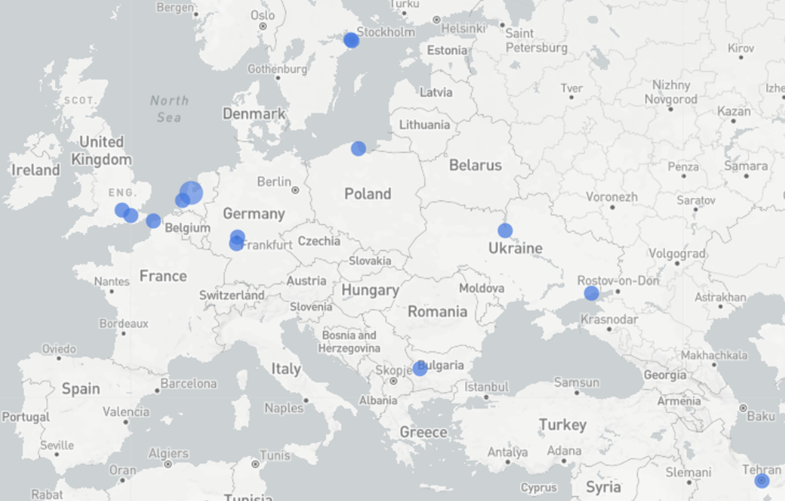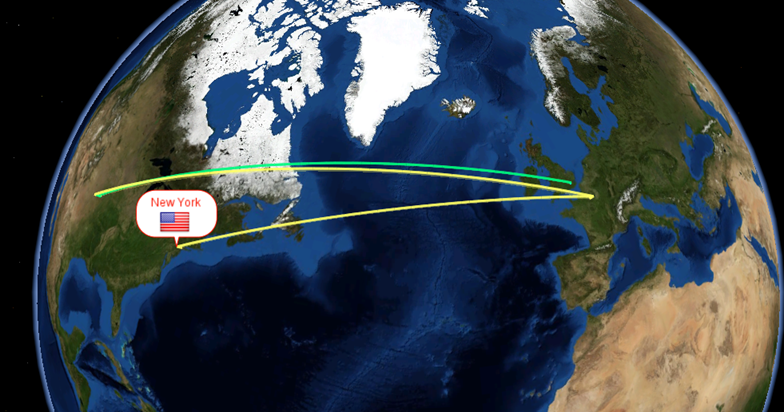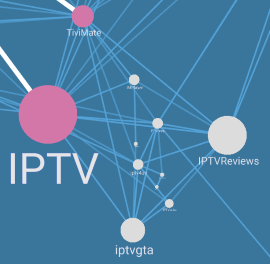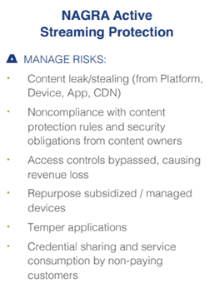-
chevron_right
beIN Sports’ Football Piracy Blitz Adds Blocking to Domain Seizures
news.movim.eu / TorrentFreak · Wednesday, 24 January - 14:09 · 5 minutes
 Perhaps more than any other broadcaster, beIN Sports understands the potential for piracy to spin out of control.
Perhaps more than any other broadcaster, beIN Sports understands the potential for piracy to spin out of control.
When a diplomatic crisis between Qatar and other Arab countries led to Saudi Arabia blocking the beIN service in 2017, beoutQ – a full-blown piracy platform – stepped in as a comprehensive but illegal beIN replacement.
Over the next two years, the political fallout spread beyond the Middle East to the United States and European Union, leading to a World Trade Organization report and ultimately the closure of beoutQ’s satellite service in August 2019.
Protecting the Africa Cup of Nations
Over four years later, beIN is still battling commercial-scale piracy. After obtaining exclusive broadcasting rights to Africa’s most prestigious football tournament, the Africa Cup of Nations (AFCON), tackling piracy of the month-long event would necessarily become a key component of the company’s overall strategy.
According to a report published by L’Informé this week ( paywall ) , beIN’s plan to curtail piracy of AFCON in France had been in the planning for some time.
Early 2022, the broadcaster became the first rightsholder to take action under Article L. 333-10 of the Sports Code, legislation introduced by the French government that provided accelerated access to anti-piracy measures such as site blocking.
According to L’Informé, on December 15 under the same system, beIN served a writ of summons on the main ISPs in France – Bouygues Télécom, Free, Orange, Outremer-Télécom, Société Réunionnaise du radiotéléphone (SFR), and SFR Fibre. On January 9, 2024, the Paris judicial court upheld beIN’s application for blocking measures against 56 illegal streaming sites, to be implemented by the ISPs, to protect the AFCON tournament.
Pirate Sites Were Likely to Air AFCON Matches
To support the blocking application, beIN presented evidence showing that the pirate sites had systematically infringed its rights in the past.
Last November, one of the domains on the list – Ishunter.net – was illegally broadcasting matches from Germany’s Bundesliga, Spain’s La Liga, and Serie A matches from Italy to which beIN holds French broadcasting rights. At the time of writing, the domain returns a parking page rather than live football streams; as a result, takedown notices filed with Google are mostly attempting to take down content that doesn’t exist , at least at the specific URLs listed.
Three other domains – ipcover.tv, maxsmart.pro and pythonlived.com – reportedly service pirate IPTV apps. Maxsmart.pro is the only domain obviously functional today, serving pearls of wisdom from the likes of Mahatma Gandhi rather than football matches, however.
Current Status of Domains
While ISP blocking measures can be evaded when injunctions are static (i.e. targets are fixed) the order obtained by beIN Sports is dynamic. This means that if the listed pirate sites use subdomains, entirely new ones, or any other measures, if beIN is confident the new locations relate to the old ones, blocking can go ahead.
Speaking with L’Informé, Caroline Guenneteau, Deputy General Secretary of beIN Media Group and Legal Director of beIN Sports France, said that 70 domains have already been blocked to protect this competition alone
“It’s very important to be proactive at the start of the competition, when there are a maximum number of illicit streams,” Guenneteau added.
Even though the blocking measures shouldn’t affect those who visit the sites from outside France, tests carried out by TorrentFreak on the specific domains as they appear in the order (full list below) suggest some have made changes.
Around 25 are still operational from their previous locations while a small number redirect to their own subdomains or new/alternative domains. Others display ‘domain parking’ style pages while others prefer to offer up their own blend of humor instead.
One of the pirate domains currently suggests involvement with the insurance and travel business, another claims to be a fitness promotion platform. At least two redirect to new domains before asking for money to keep things going.
A handful of others show Cloudflare error messages but as these above show, perhaps not all messages appearing on these domains are authentic.
In any event, finding alternatives through search engines may be more difficult than it was before. The order obtained by beIN allows it to serve court orders on companies such as Google, requiring the domains to be delisted from search results.
The domains listed in an order published on the Lumen Database are broadly similar to those present in the original order, but additional notices will likely be sent as new domains are reported.
The blocking action in France complements the action we reported here on Monday . Dozens of domains linked to sites previously showing live football matches, to which beIN owns the rights, began redirecting to the Alliance for Creativity and Entertainment.
Among those domains were 7kora.mpokora-online.com and 7koora.mpokora-online.com, both of which currently show the ACE domain seizure banner.
Since they’re also on beIN’s ISP blocking list, visitors to those domains in France shouldn’t be able to access the sites, so in theory will be spared the bad news.
The domains/URLs to be blocked by ISPs in France:
Kooora4lives.net
Ishunter.net
Sportp2P.com
Rojadirect1.pro
Aflam4you.org
Kora-star.online
Yallalive.id
360kora.net
Live-koora.live
Yalla-live-tv.io
Sporttv123.xyz
Wholewellnesswhirl.live
Sporttvls.com
Top.crackstreamfree.com
Top2.crackstreamfree.com
Top3.crackstreamfree.com
Top4.crackstreamfree.com
Top6.crackstreamfree.com
Stad.livehd7s.live
V3.sportonline.so
Shoot.yallashoote.com
W1.yalla-shoot-tv.io
Futbolandres.xyz
360kora.tvem.net
Aleexsportz.online
Yalla-live.org
Sa.yalla-live.com
Lkooora.live
Livehd72.com
Kora-yallashoot.com
Kora.live-kooora.io
Goalarab.org
Go.livehd72.livve
Ar.new-yallashoot.com
10koora.livekooora.online
Totalsportek.pro
Kooralivs.com
7kora.mpokora-online.com
7koora.mpokora-online.com
Tv.yalla-shoot2day.com
Tv.yacine-tv.app
Spie.livehd7.io
Dotsport1.com
Yala-shoot.live
Streams.lc
Beinmatch1.com
Beinmatch.motorcycles
365kora.com
Ma.360kora-live.com
Kora.live-koora.net
Gogolion.xyz
Ipcover.tv
Maxsmart.pro
Megahdtv.xyz
Pythonlived.com
Smart-prott.xyz
From: TF , for the latest news on copyright battles, piracy and more.






















